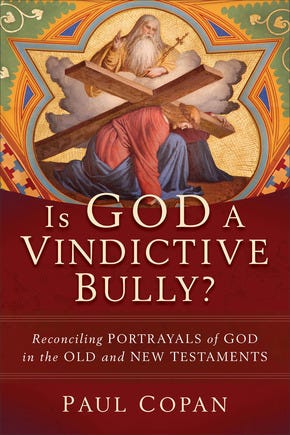If you are doubting your faith, I want to encourage you to take a deep breath. Your faith need not hang in the balance only if you can somehow get rid of all your doubts by the end of the day. This pressurizes the situation and keeps you from being able to think clearly about the questions you have. So let me take some pressure off. You can question and even doubt your faith while entrusting your life to the truth of Christianity.
Doubt Versus Unbelief
Why is this? Faith and doubt are consistent because, as Os Guinness points out in his book God in the Dark, “Doubt is not the opposite of faith. Unbelief is.” Having doubts, even serious doubts, does not mean you don’t have faith. Faith and doubt are not opposites like black and white. In fact, doubt seems to require some measure of faith or at least belief. Think about it: if you didn’t believe in Christianity, then there would be nothing to doubt. We doubt those things we still believe until we resolve the doubt or we stop believing. So doubt only makes sense in the context of belief and faith.
Now we may go from a place of doubt to a place of unbelief. In the Bible the term unbelief is often used in a particular way. It’s not the mere lack of a belief. As Guinness puts it, unbelief “is usually used of a willful refusal to believe or of a deliberate decision to disobey.” He goes on, “Unbelief is a state of mind that is closed against God, an attitude of heart that disobeys God as much as it disbelieves the truth. Unbelief is the consequence of a settled choice.” Guinness makes the point that unbelief is an act of the will.
When it comes to doubt, in its most basic sense, we don’t typically choose to doubt. We make choices in light of our doubts, but whether we struggle with doubt in a particular area is not typically up to us.
It’s much like the distinction between feelings of affection and acts of love. We can’t just choose to feel affection for someone, but we do choose to act lovingly. The feelings of affection may come and go, but we may choose to love someone even if we are not “feelin’ it” at a particular moment. We can of course make choices that help cultivate or change our feelings of affection with, say, a family member who’s hard to love. But the feelings themselves are not directly up to us.
Doubt is like this. We may start to struggle a bit as we ask deep and difficult questions about our faith. In this, we are not choosing to struggle. This is just how it strikes us. We can choose to investigate our doubts or just ignore them, hoping they go away. That is, we have many choices in light of the doubts, and our choices may lead us to a place of greater or lesser doubts. However, doubts arise in us when we have questions we can’t answer and we begin to struggle with this. We can choose unbelief and intellectually ignore or walk away, or we can choose faith. Faith is the opposite of unbelief in that we choose to lean in and venture in trust rather than willfully refusing to believe.
I can illustrate the distinction between doubt and unbelief with the story of the apostle Thomas. Though he is often labeled as “doubting” Thomas, his issue is not mere doubt (see John 20:24‑29). It seems to be a struggle with unbelief. As the story goes, Thomas was the only one who wasn’t present to see the risen Jesus when he first appeared to the disciples (John 20:19‑23). Imagine how you would feel if you were Thomas. The person he had committed his life to in discipleship has just been shamefully executed. He thought this was going to be a movement in which Jesus, as the Jewish Messiah, would become king of Israel. But it didn’t happen. Jesus is dead. Or at least he was dead. As it turns out, every one of Jesus’ closest followers sees Jesus risen from the dead—except Thomas. When the other disciples tell Thomas they have seen the Lord, Thomas doesn’t only want to see the risen Jesus but also wants to put his finger into his wounds! He demands it, otherwise, as he says, “I will not believe” (v. 25).
We don’t know all of what was going on in the heart of Thomas; however, it looks like he has become stubborn and raised the intellectual stakes considerably. Perhaps he is feeling hurt in being left out. In any case, he doesn’t seem to be struggling with doubts about what he believes as much as refusing to believe. It’s not as if he’s weighing the evidence and is not yet convinced. He disregards the testimonial evidence of his closest friends. In the face of their testimony he says he will never believe unless he gets what the other disciples got—and more. This, it seems to me, is not a mere intellectual battle of the mind. It’s the stubbornness of the heart.
The core struggle of doubt, on the other hand, is not willful; it is not a choice. If we had a choice, most of us would never choose to doubt. By its nature it’s a struggle with what to believe, which is often an unenjoyable place to be. If we could shake the doubts, we would.
— Travis Dickinson is professor of philosophy at Dallas Baptist University. He has taught courses in philosophy and Christian apologetics for over twenty years and has done apologetics and evangelism in more than thirty-five countries. He lives with his family in Fort Worth, Texas.
---
Taken from Wandering Toward God by Travis Dickinson. Copyright (c) 2022 by Travis McLane Dickinson. Used by permission of InterVarsity Press. www.ivpress.com
“For a long time, we have needed an informed, fresh new guide in navigating through stormy waters of doubt. Careful to distinguish doubt from unbelief and offering an extremely helpful definition of faith (ventured trust), Dickinson’s book has it all. It begins with chapters that clarify doubt, faith, and related notions, along with locating the place of doubt in the process of spiritual growth. It moves on to discuss strategies for dealing with doubt, and it provides accessible answers to specific topics often involved in doubt. A truly wonderful book.”
— J. P. Moreland, Distinguished Professor of philosophy at Talbot School of Theology, Biola University, and author of A Simple Guide to Experience Miracles
Find Wandering Toward God: Finding Faith amid Doubts and Big Questions at Amazon, InterVarsity Press, and other major booksellers.
Image by Gerd Altmann from Pixabay
Is God a Vindictive Bully?
Reconciling Portrayals of God in the Old and New Testaments
Critics outside the church often accuse the Old Testament God of genocide, racism, ethnic cleansing, and violence. But a rising tide of critics within the church claim that Moses and other “primitive,” violence-prone prophets were mistaken about God's commands and character. Both sets of critics dismiss this allegedly harsh, flawed, “textual” Old Testament God in favor of the kind, compassionate, “actual” God revealed by Jesus. Are they right to do so?
Following his popular book Is God a Moral Monster?, noted apologist Paul Copan confronts false, imbalanced teaching that is confusing and misleading many Christians. Copan takes on some of the most difficult Old Testament challenges and places them in their larger historical and theological contexts. He explores the kindness, patience, and compassion of God in the Old Testament and shows how Jesus in the New Testament reveals not only divine kindness but also divine severity. The book includes a detailed Scripture index of difficult and controversial passages and is helpful for anyone interested in understanding the flaws in these emerging claims that are creating a destructive gap between the Testaments.
“Do you have a problem with something, or a lot of things, in the Old Testament? Paul Copan has provided a virtual encyclopedia of helpful answers to frequently asked questions that trouble many readers. He tackles a whole range of objections that arise both from those who claim broad Christian allegiance to the Bible as a whole and from those who make no such claim whatsoever and use the Old Testament as a major reason for their hostility. This is a thoroughly detailed reference work that those of us who teach or preach the Old Testament will turn to frequently, or point others to, when such questions are aired. An excellent resource indeed!”
— Christopher J. H. Wright, global ambassador and ministry director, Langham Partnership; author of Old Testament Ethics for the People of God
See our Worldview Bulletin excerpt from Is God a Vindictive Bully? here.
Find Is God a Vindictive Bully? at Amazon, Baker Publishing Group, and other major booksellers.
* The above are sponsored posts.
Subscribe to or Support The Worldview Bulletin
Your support makes The Worldview Bulletin possible! We couldn’t do this without the support of you, our readers. We would be grateful for your help in any of the following ways:
Subscribe to our monthly newsletter and receive exclusive content from our team of world-class scholars and access to our full archive of scores of articles that provide a master class in Christian apologetics. You can also give a gift subscription to a family member or friend who would benefit, or subscribe a group of three or more and save 20%.
Make a one-time or recurring donation.
Become a Patron and receive signed books from our team members.
“The Worldview Bulletin shines a brilliant light of truth in a darkening world. These authors, who are experts in their field, consistently provide logical, rational, moral and most importantly biblical answers, in response to the deceitful narratives we are bombarded with daily. I have found it a great source of enlightenment, comfort, and inspiration.”
— B. Shadbolt, Subscriber, New South Wales, Australia
“I find The Worldview Bulletin very stimulating and would encourage all thinking Christians to read it.”
— John Lennox, emeritus professor of mathematics, University of Oxford, emeritus fellow in mathematics and philosophy of science, Green Templeton College, author of Cosmic Chemistry: Do God and Science Mix? (Lion)
Advertise in The Worldview Bulletin
Do you have a book, course, conference, or product you’d like to promote to 5,220 Worldview Bulletin readers? Click here to learn how. We’re currently booking for November and December.






Dr. Dickinson's new book, Wandering Toward God, is brilliant. It is in fact 'the' book I have been looking for since my freshman year at University sixty years ago. It is the perfect guide for the troubled heart yearning to rest securely in the mighty arms of our Lord Jesus! Roger Price